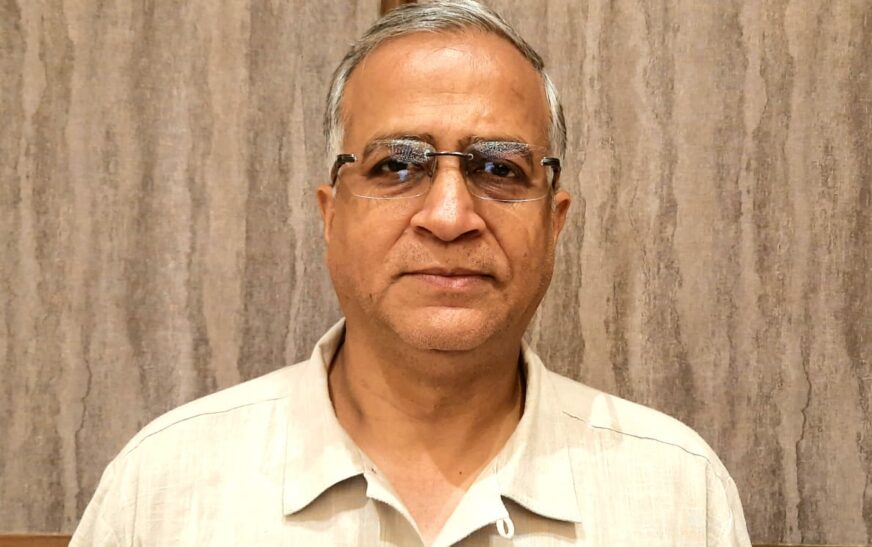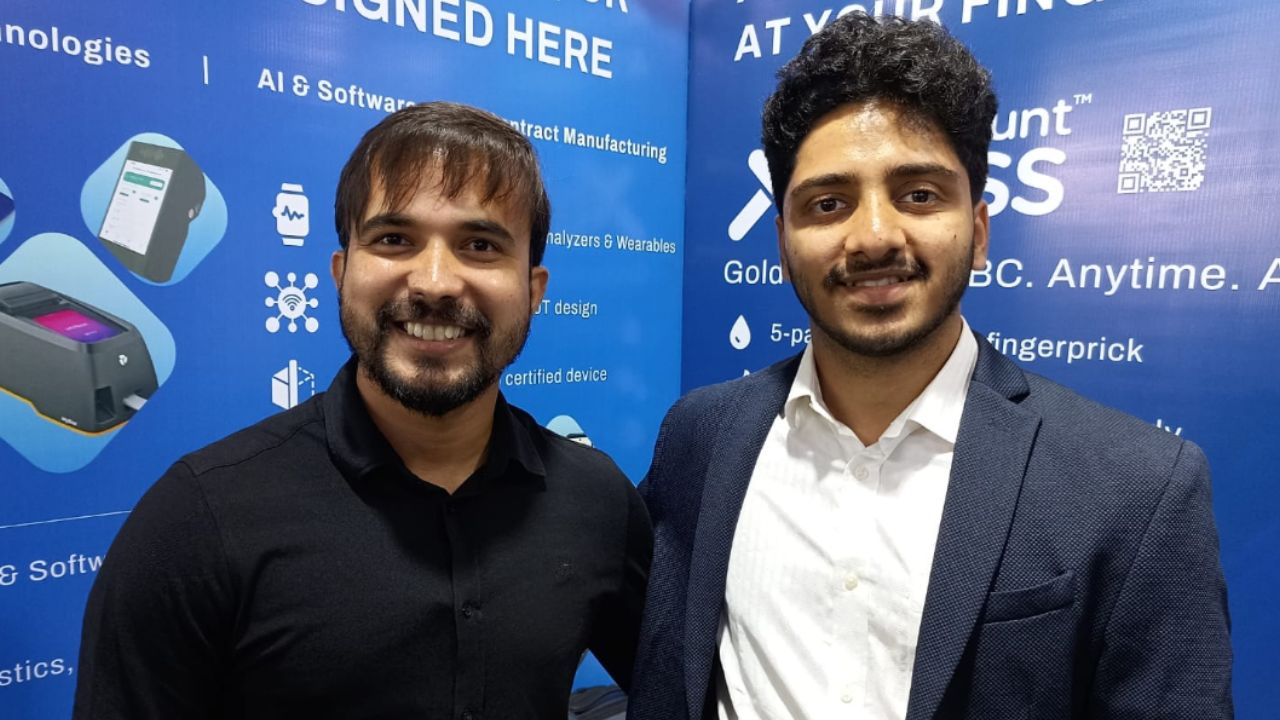PadUp Ventures, a pioneering knowledge and mentorship platform, is forging strategic alliances with incubators and accelerators across a wide spectrum of sectors—spanning government bodies, corporate enterprises, academic institutions, and individuals. It aims to elevate the survival rate of startups through an exhaustive 360-degree mentorship framework. PadUp empowers innovators to transform tangible, real-world challenges into sustainable, scalable ventures by offering bespoke educational support and meticulous oversight.
Through its groundbreaking virtual corporate accelerator and its trio of flagship programs—BootUp, StrupUp, and RevUp—PadUp Ventures delivers end-to-end, precision-guided mentorship. From validating a business idea to scaling it, PadUp provides the tools and insight necessary for startups to spearhead disruptive innovation.
In an exclusive dialogue with The Interview World, Rajat Jain, Founder and Director of PadUp Ventures, and Chairman of Fino Payments Bank, elucidates how his organization serves as a transformative force in mentoring early-stage startups, significantly boosting their survival rates. He also delves into the number of startups currently affiliated with PadUp, the sector-specific ventures they focus on, and the total funds raised thus far.
Additionally, Rajat provides a comprehensive overview of Fino Payments Bank’s core offerings and its pivotal role in advancing financial inclusion within rural communities. He further outlines the future trajectory of payment banks and explores the critical role technology plays in mitigating cybersecurity risks in the financial sector.
Here are the key insights from this exclusive interview.
Q: Could you elaborate on how PadUp Ventures is fostering innovation and driving growth within the startup ecosystem?
A: At PadUp, we are dedicated to mentoring nascent technology startups during their critical early years, specifically within the 0 to 5-year window, to bolster their chances of survival and scaling. In India, the grim reality is that over 90%—potentially even 95%—of startups fail within their first five years. This translates to a staggering statistic: out of every 100 startups, only 5 will endure. Our mission is to significantly enhance this survival rate, aiming to elevate it from a mere 5% to a more robust 20, 30, or even 35%.
Q: How is your organization strategically intervening to enhance the survival and long-term sustainability of startups?
A: One of the most significant factors contributing to startup failure is a lack of clarity in the business model, an insufficiently developed idea, and the absence of effective mentorship. To build a successful business, you need a compelling idea, but that’s just the beginning; you also need capital. Once funding is secured, the execution—rooted in knowledge and experience—becomes paramount.
Young entrepreneurs often bring boundless energy, passion, innovation, and fresh ideas. However, they frequently lack the experience, expertise, and networks—what some might call “grey hair”—that are crucial for navigating the complex landscape of business. The importance of a strong network and access to capital cannot be overstated.
Success hinges on both elements: the vibrant drive of youthful entrepreneurs and the seasoned wisdom of mentors. You’re likely familiar with the concept of the guru-disciple relationship, where the guru imparts wisdom, knowledge, experience, and connections, as well as access to capital. At PadUp, we embody that guru role, bridging the gap between ambition and achievement within the startup community. We firmly believe that by combining these vital components, we can elevate the survival rate of startups in their first five years from a mere 5% to an impressive 30%.
Q: How many startups are currently affiliated with PadUp Ventures, and how do you support their growth and development?
A: PadUp Ventures has been championing startups for nearly 7 to 8 years. During this time, we have meticulously screened over 3,000 startups, selecting more than 300 to participate in our structured mentoring programs. Among these, our flagship program, BootUp, spans four to five months. Successful graduates of BootUp have the opportunity to raise capital and progress to our one-year growth and acceleration program, RevUp.
To date, approximately 300 startups have entered the BootUp program, with around 150 to 155 successfully graduating. The remainder, unfortunately, have not met the program’s rigorous standards and are encouraged to pivot or pursue alternative paths. We believe that if a startup struggles for three, four, or five years, it is far more beneficial to recognize within three months that the current idea may not be viable. Our process includes a scientific approach to validation.
Feedback from participants often reveals a desire to explore different avenues, whether that means seeking employment or reworking their ideas. Consequently, roughly half of the participants may step back, while the other half move forward and secure funding. While we do not invest our own capital—since we are not structured as a venture capital or angel fund—we have cultivated a robust community known as Friends of PadUp, comprising 250 angel investors and mentors. These individuals are willing to invest initial capital, ranging from 50 lakhs to 1 crore, based on their preferences.
As a result, around 140 companies have advanced through our programs. Of those, approximately 40 have continued to secure additional funding, with nine of them currently on the cusp of achieving Series A funding.
Q: Which specific startup sectors are you primarily focusing on, and what drives your interest in these areas?
A: We operate an ongoing program that annually welcomes 50 diverse companies. Embracing a sector-agnostic philosophy, we focus on early-stage ventures, where the primary objective is to validate ideas rather than conform to specific industries. However, our core emphasis lies in pivotal sectors such as healthcare, education, logistics, FinTech, and finance—domains where we nurture a multitude of innovative startups, including a significant number specializing in blockchain technology. Ultimately, our partnerships are shaped by the unique vision and potential of the startups we engage with.
Q: How much funding has your organization successfully raised for startups?
A: Over the past six to seven years, our PadUp ecosystem has successfully facilitated the fundraising of approximately Rs. 25 crores to Rs. 30 crores for our startups. This translates to an average investment of around Rs. 50 lakhs across 70 to 80 burgeoning ventures. However, it’s essential to note that not all startups emerging from our program rely on us for funding; many forge their own paths to secure investment. While numerous entrepreneurs boast about their networks—often referencing connections through family or friends—our approach is more expansive, enabling them to explore diverse funding sources beyond our direct involvement.
Q: Could you provide an in-depth overview of the key initiatives and activities undertaken by Fino Payments Bank, particularly in expanding financial inclusion and offering innovative banking solutions to the rural population?
A: Fino Payments Bank, a licensed entity under the Reserve Bank of India, operates as a payment bank, primarily facilitating transactions and offering current and savings accounts. However, it does not extend lending services due to the absence of a credit facility license, though we have applied for a small finance bank license with the RBI. Notably, Fino is the only profitable payments bank in the nation and has been a key player in the market for over 15 years.
Fino’s focus lies predominantly in the non-metro regions, specifically tier 2, tier 3, and tier 4 cities, where it champions the cause of banking for rural India. In areas underserved by traditional banks, Fino creates opportunities through its extensive merchant network. Leveraging technology, it transforms merchants into banking facilitators, employing devices akin to small point-of-sale terminals. This innovation enables customers to perform a multitude of transactions: withdrawing and depositing funds, opening accounts, remitting money overseas, and receiving international funds.
By facilitating financial inclusion, Fino empowers individuals in lower and middle-income brackets. For instance, a domestic worker who wants to send money to a family member in Bihar can seamlessly use the Fino platform. This fosters seamless connections in the absence of a conventional bank account. Fino is dedicated to advancing financial inclusion, ensuring that essential banking services reach the unserved.
Q: How do you envision the future trajectory of payment banks in India, particularly in their role in advancing financial inclusion, digital banking, and serving underserved communities?
A: India stands at the precipice of tremendous economic potential, underscoring an urgent demand for expanding financial services. As a growing number of citizens ascend into income brackets that necessitate access to banking, insurance, and related services—such as remittances and transfers—the landscape is evolving rapidly. The meteoric rise of the Unified Payments Interface (UPI) is a testament to this shift, with companies like Fino leading the charge in facilitating UPI transactions.
The horizon gleams with promise; however, it does not come without its hurdles. The financial sector must navigate a landscape fraught with pitfalls such as mistakes, duplicate payments, and fraudulent practices as significant concerns. Therefore, we must implement robust checks and balances that can safeguard the trajectory of growth and technology, ensuring secure and sustainable progress.
Q: Technology acts as a key enabler for growth, but it also brings inherent security risks. How are small banks managing these vulnerabilities?
A: Harnessing technology to mitigate risk is not just advisable; it’s essential. While technology undeniably introduces vulnerabilities in the form of viruses, it also equips us with protective measures like antivirus software. Savvy individuals recognize both the potential and the pitfalls of technological advancements, striving to discern how they can be harnessed effectively and misused maliciously.
Implementing robust firewalls within systems is crucial to minimizing instances of negative exploitation. However, achieving a complete eradication of risk is an unrealistic goal. Cybersecurity threats and attacks are an everyday reality, a stark reminder of our digital age. Yet, we must embrace technology as a defensive tool, recognizing that the interplay between virus and antivirus is an apt metaphor for our ongoing struggle in this arena.










1 Comment
“This article is really informative and well-written!”
Comments are closed.